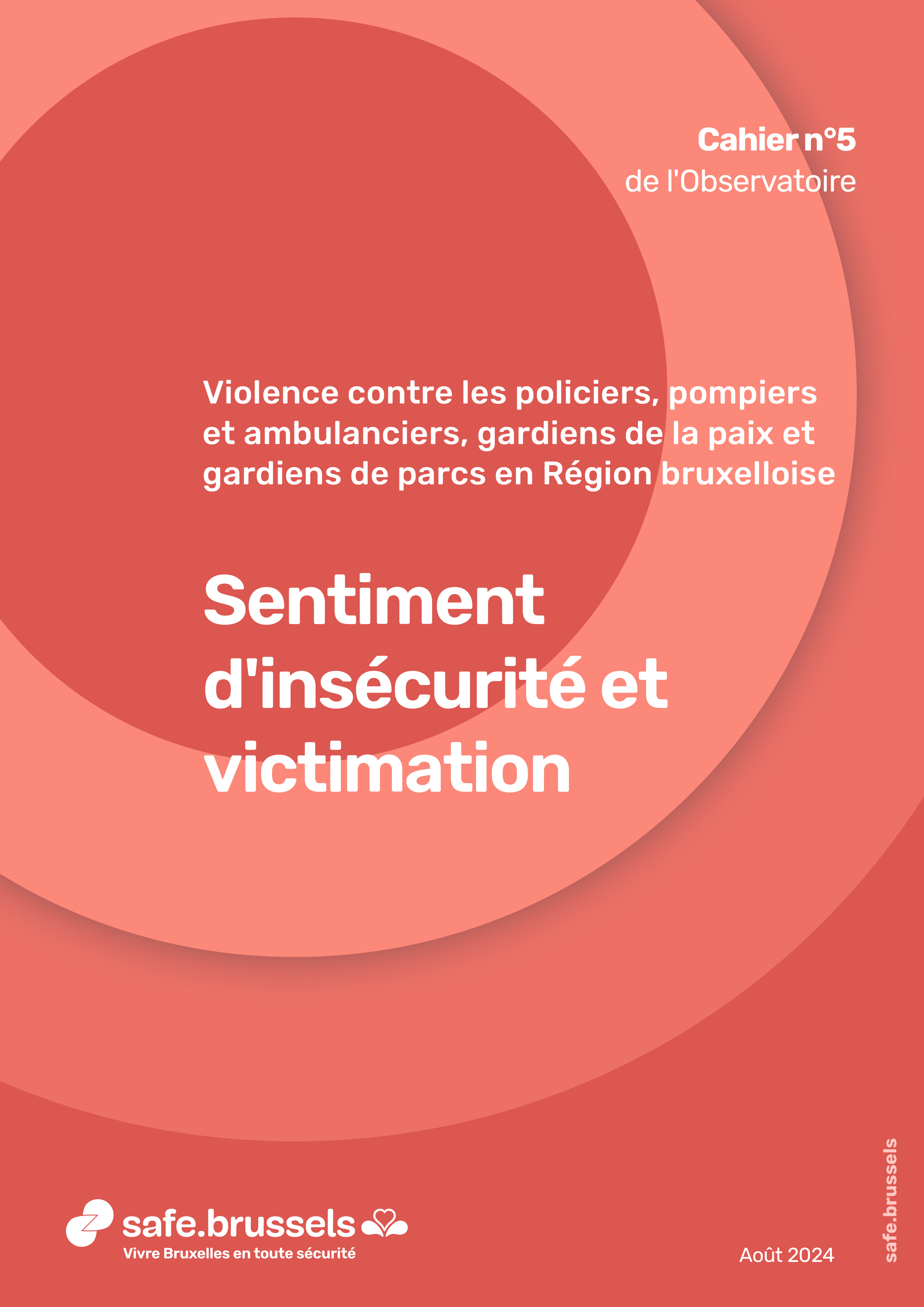Violence against community service professions: the Observatory's new survey reveals the impact on police, fire fighters, and social and preventive officers
08.08.2024Safe.brussels publishes the initial results of analysis carried out by its Observatory on violence against community service professions
Violence against police officers and fire fighters, which regularly hits the headlines, also affects other, more social and preventive professions. It is against this backdrop that the safe.brussels Observatory has undertaken an in-depth analysis of the violence suffered by community service professions. This study covers not only the police and emergency services (SIAMU), but also municipal social and preventive officers, such as peacekeepers, and regional ones such as park wardens. The initial findings of this research shed light on officers' feeling of safety and how it changed during the health crisis.
Police officers feel the least respected
Of the four professions studied, police officers feel the least respected by the public: three out of 10 police officers feel they are "never" or "rarely" respected. They also feel the most unsafe (one in four say they are "always" or "often" unsafe) and say they are the most exposed to violence. However, all the professions surveyed are affected by verbal violence: more than half of officers report being victims of it at least once a month. Around two-thirds of police officers and one-third of other officers are subjected to threats and intimidation every month. As for physical violence, it affects three out of 10 police officers, one out of five park wardens, one out of 10 peacekeepers and one out of seven firefighters at least once a month.
A period of crisis marked by tension
The Covid-19 crisis exacerbated certain tensions between officers and the public. The health measures gave rise to discontent, and officers were often seen as responsible for their application, which sometimes led to conflict. This situation particularly affected segments of the population previously considered by officers as unlikely to resort to violence, such as individuals from privileged socio-economic backgrounds. For many of the officers surveyed, the crisis amplified a break with "Authority", which has impacted all the professions associated with it.
"Respect begets respect"
The accounts gathered also highlight the importance of the behaviour of officers themselves in maintaining cordial relations with citizens. Improving relations between citizens and authorities (and the professions seen as their representatives) remains a topical issue and a work priority for safe.brussels. To this end, the administration supports associations active in this area and leads working groups aimed at improving relations between citizens and police, in line with the Brussels Parliament Resolution of 18 December 2020.
Concrete initiatives to improve relations between citizens and law enforcement agencies
Several initiatives supported by safe.brussels are helping to address the issues raised by the Observatory. These include:
- JES - Je kiffe Bruxelles (I love Brussels): a two-day training programme for police officers to better understand the hyper-diverse context of Brussels. The aim is to provide them with the tools to interact constructively with urban young people, promoting a cooperative approach.
- BeFUS (Belgian Forum for Urban Security): a bilingual, participatory project that builds trust and respect between citizens and local authorities.
- AtMOsphères: a project entitled "Police et jeunesse: l'espace public comme lieu de vie et de sécurité" ("Police and youth: public spaces as a place to live and feel safe"), which is helping to establish a dialogue between young people and police officers to ease tensions in public spaces. The project includes training courses on the rights and obligations of young people in public spaces, as well as activities in schools and a free legal hotline.
Find out more in the CiPol report: https://safe.brussels/en/new-report-existing-initiatives-brussels-capital-region-improve-relations-between-citizens-and-law
Download




